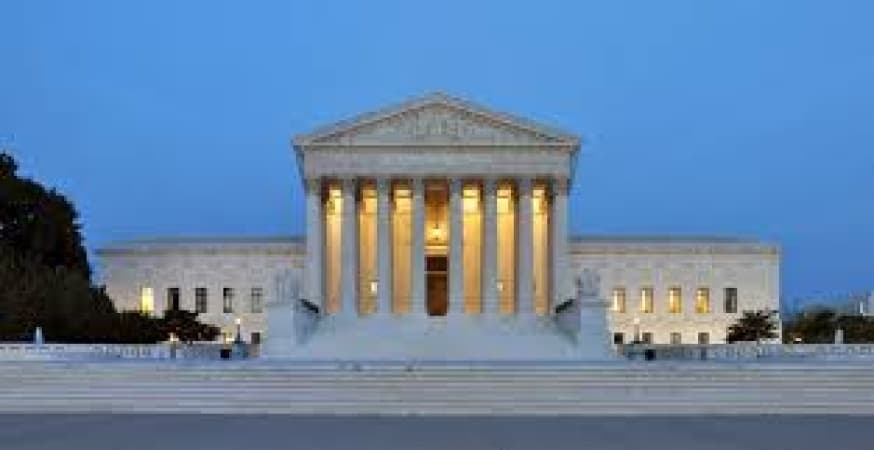
The Supreme Court appeared deeply concerned Wednesday with President Donald Trump’s reliance on a vague federal law to impose global tariffs, with several members of the court’s conservative wing picking apart the administration’s position in a case that could have sweeping implications for the economy and presidential power.
During more than 2 and a half hours of argument in one of the most important economic cases to reach the high court in years, Chief Justice John Roberts and several of his fellow conservatives pointedly questioned the administration on its contention that it has the power to levy the tariffs and that the duties are a form of “regulation” of imports rather than a tax ultimately paid by American consumers.
If it breaks with Trump on tariffs, it would be the first time the 6-3 conservative court has done so in a major argued case since the president returned to power in January. In case after case, the court has blessed the administration’s boundary-pushing policies on immigration, spending and independent agencies.
Here are the key takeaways from Wednesday’s arguments:
The arguments were lengthy, but some signals about how the justices are thinking about the appeal were clear almost immediately.
Roberts, who is without a question a key vote, noted that the 1970s law the administration has relied on to levy the tariffs has never before been used for that purpose, and also pointed out that Congress has explicitly authorized presidents to raise tariffs in other laws but did not do so in the law raised in the case.
“Correct me on this if I’m not right about it,” Roberts said, but the justification is being used for “a power to impose tariffs on any product, from any country, in any amount, for any length of time.”
At one point, Roberts said the basis for that claim “seemed to be misfit.”
The International Emergency Economic Powers Act, or IEEPA, gives a president power to “regulate … importation” during emergencies. US Solicitor General D. John Sauer, the administration’s top appellate attorney, argued that word plainly includes the power to impose tariffs, since tariffs are the most common way a government regulates imports. But the businesses challenging the duties have balked at that reading of the law.
Justice Amy Coney Barrett, who was Trump’s final nominee to the high court, also had questions on that point.
“Can you point to any other place in the code – or any other time in history – where that phrase, together, ‘regulate importation’ has been used to confer tariff imposing authority,” Barrett said during one of the more important moments in the argument.
Sauer reached for a case involving President Richard Nixon’s administration.
Barrett quickly interrupted, framing that case as involving “an intermediate appellate court,” by which she meant: not the Supreme Court.
Justice Brett Kavanaugh emerged as perhaps the most important – and hardest to read – justice on the court Wednesday.
Trump’s second nominee to the Supreme Court repeatedly returned to an argument the Trump administration raised about Nixon. In 1971, Nixon imposed a 10% tariff on all imports – which the administration later justified under the Trading with the Enemy Act, a precursor to IEEPA. Notably, that law used identical language to give the president authority to “regulate” imports.
A federal court upheld Nixon’s tariffs, and Congress enacted IEEPA with the understanding that it had done so. Sauer’s argument is that if Congress had a problem with presidents imposing tariffs based on the “regulate” language, it would have adjusted those words when it enacted IEEPA.
“President Nixon announced those tariffs in a nationwide prime-time speech, 10% across the board in August 1971, it was not some kind of little piece of paper, so it was well known,” Kavanaugh pressed Neal Katyal, the veteran Supreme Court attorney representing the small- and medium-sized businesses challenging the law.
The question, Kavanaugh said of Congress, is “why didn’t they change the language? Why didn’t they say regulate but not tariffs?”
Katyal noted that Nixon did not immediately rely on the precursor to IEEPA to impose those tariffs – only later, when the tariffs were challenged in court.
A significant question looming over the arguments was whether businesses would be entitled to tariff payment refunds if the justices rule against the Trump administration’s use of emergency powers to impose tariffs.
The federal government has collected nearly $90 billion in revenue from the tariffs being challenged, according to United States Customs and Border Protection data as of September 23.
Earlier this month, Trump said in an interview with Fox Business that if the Supreme Court ruled against him, “we’d have to pay back money.”
Barrett asked Katyal how that process could work – a signal that she may have concerns with the practical implications of ruling against the administration.
“Would it be a complete mess?” she asked.
Katyal said the businesses he’s representing should undeniably be entitled to a refund if the justices rule in their favor, but for other businesses he said it would be “a very complicated thing.”
“So, a mess,” Barrett interjected.
“It’s difficult, absolutely, we don’t deny that,” Katyal responded.
Justice Samuel Alito, another member of the court’s conservative bloc, seemed to suggest an appetite for resolving the refunds matter sooner rather than later since waiting would only increase the amount of tariff revenue collected and the complexity of it. While every lower court to consider the tariffs ruled against them, they allowed the duties to remain in place for now.
Trade lawyers previously told CNN that the justices would likely be tasked with deciding who is entitled to a tariff refund if they rule against the president.
While several members of the court’s conservative supermajority gave mixed signals of how they may ultimately rule, the court’s three liberal justices made clear that they weren’t buying the arguments the Trump administration was attempting to sell.
Justices Elena Kagan, Sonia Sotomayor and Ketanji Brown Jackson were reliable foes of Trump’s arguments during the hearing, repeatedly pushing back on Sauer’s arguments in defense of the tariffs.
At one point, Jackson, an appointee of former President Joe Biden, said in a testy exchange with Sauer that Congress enacted the IEEPA in an effort to “constrain,” not expand, presidential power.
“It’s pretty clear that Congress was trying to constrain the emergency powers of the president in IEEPA,” she said. “So it seems a little inconsistent to say that we have to interpret a statute that was designed to constrain presidential authority consistent with an understanding that Congress wanted the president to have essentially unlimited authority.”
Kagan, meanwhile, seemed especially peeved by Trump’s repeated decision this year to declare emergencies to advance various controversial policies, including tariffs. Trump has said that trade imbalances and trafficking of fentanyl are the emergencies that justify the tariffs.
Though the emergencies Trump declared earlier this year to justify his sweeping tariffs were not directly at issue, Kagan noted that the administration has consistently argued in a variety of other cases that courts are powerless to review a president’s decisions around national emergencies.
“And in fact, you know, we’ve had cases recently which deal with the president’s emergency powers,” said Kagan, nominated by former President Barack Obama. “And it turns out we’re in emergencies - everything all the time, about, like, half the world.”
The case is about Trump, but Biden hung over the arguments from the start.
The Supreme Court was clear in several high-profile cases during Biden’s term that administrations can’t read broad authority into vague legal language. This became known as the “major questions doctrine,” or the idea that the administration must point to clear, specific language in the law when exercising policies that involve “major” political or economic questions.
Two years ago, the court’s conservative majority relied on what’s known as the “major questions doctrine” to block Biden’s student loan forgiveness plan. A year earlier, the court stopped Biden’s vaccine and testing requirement for 84 million Americans, concluding that Congress never explicitly gave the government the power to demand those measures during the Covid-19 pandemic.
Katyal, arguing for the businesses affected by the tariffs, repeatedly returned to the idea that the same doctrine should apply when it comes to Trump.
“Didn’t we, in the Biden case, recently say an emergency can’t make clear what’s ambiguous?” asked Justice Sonia Sotomayor, an Obama nominee.
Sauer parried with one of the administration’s central arguments: the major questions doctrine hasn’t been used before in the foreign policy context. Presidents, it is widely assumed, are due deference from the other branches of government when it comes to foreign affairs.
“Counsel,” Sotomayor shot back. “We have never applied it to foreign affairs, but this is a tariff. This is a tax.” (CNN)


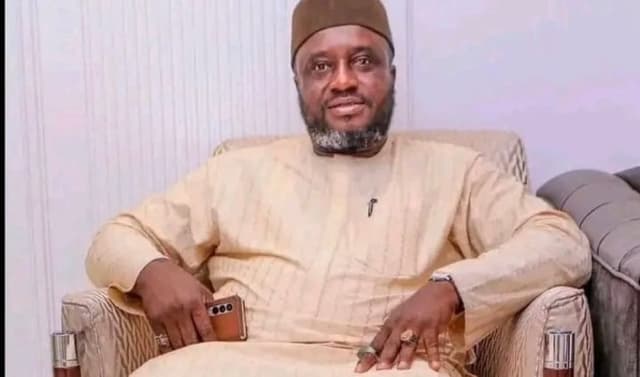







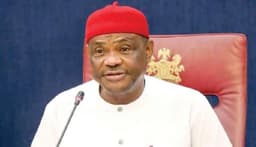


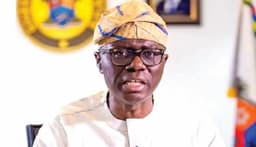


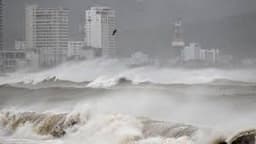
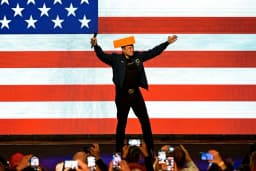
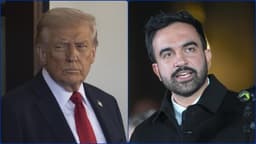

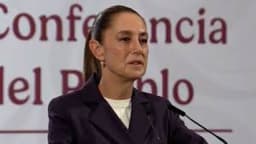
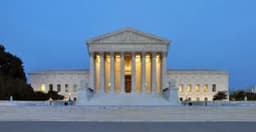



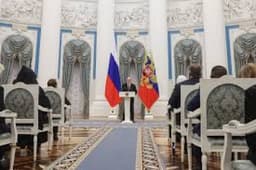

NEWS EXPRESS is Nigeria’s leading online newspaper. Published by Africa’s international award-winning journalist, Mr. Isaac Umunna, NEWS EXPRESS is Nigeria’s first truly professional online daily newspaper. It is published from Lagos, Nigeria’s economic and media hub, and has a provision for occasional special print editions. Thanks to our vast network of sources and dedicated team of professional journalists and contributors spread across Nigeria and overseas, NEWS EXPRESS has become synonymous with newsbreaks and exclusive stories from around the world.